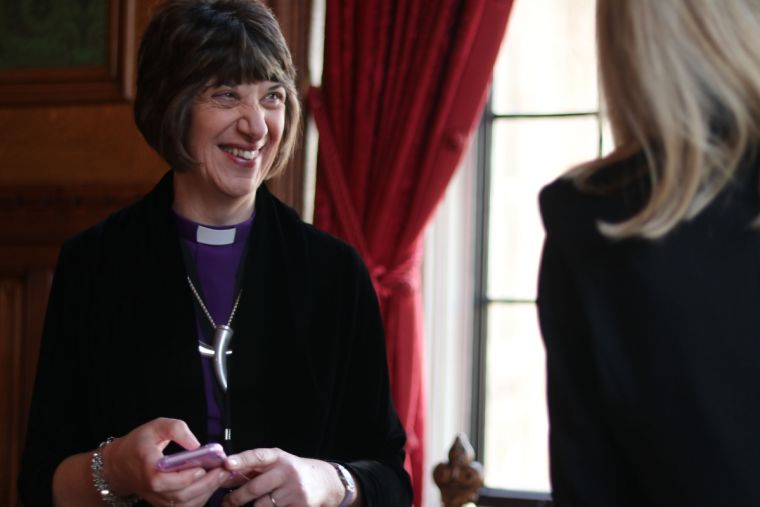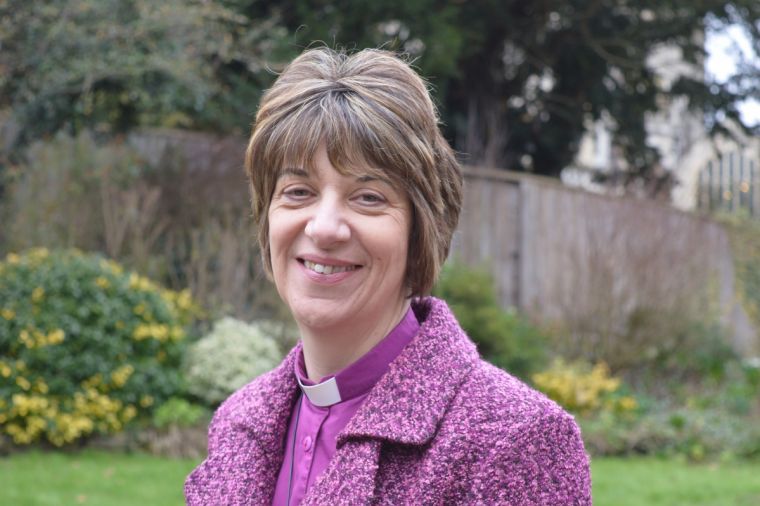WATCH: Judge women by more than how they look, says Bishop Rachel Treweek on International Women's Day

Women must be valued for more than what they look like, Engand's first diocesan woman bishop says today.
Bishop of Gloucester Rachel Treweek, in a film released to mark International Women's Day, says she especially wants to help women ex-offenders rebuild their lives and their self-esteem.
Every person should know that they are made in the image of God and loved, valued and precious, she says.
'As a follower of Jesus Christ, I'm passionate about every person, that they're created in the image of God, that they're loved, valued and precious.
'That's why I've been speaking out against all the messages in our society that say that our value comes from our external appearance.'
This was 'particularly an issue' for many girls.
'Women in prison often feel devalued, from all that's gone in their own lives,' she added.
She is working with others in her diocese to make available a house that can be used for women when they come out of prison so they can be with their children again.
'I am working with a wonderful organisation, The Nelson Trust, who are running a programme to ensure that women coming out of prison can be reunited with their children. I'm hoping that this home will enable those women to be bold for change and discover where their true value really comes from.'
She says it was this passion that led her to set up the #Liedentity social media campaign against negative body images.
Earlier, Bishop Treweek challenged MPs and guests at an event in the House of Lords to mark International Women's Day, in partnership with Christian Aid and Restored, to promote gender equality.
Muzoon Almellehan, an 18-year-old Syrian refugee, spoke for the Malala Fund about the importance of prioritising girls' education. She said: 'While I was in the refugee camp in Syria, I went from tent to tent to tell parents that [their daughters] needed teachers, not husbands.' She called on the UK government to increase support for education, especially for female refugees.
Loretta Minghella, Christian Aid's chief executive said: 'Two thirds of the world's extreme poor are women and girls. Poverty has a woman's face.' She added: 'Our voices have the power to transform people's experience of gender – especially for women and girls living in poverty – and to ensure they are shaped not by oppression, but by justice, dignity and hope.'
Niki Gould from the Nelson Trust said: 'As a consequence of women going into prison, more than 17,000 children are separated from their mothers each year. Over 80 per cent of these women have committed a non-violent offence. It costs £45,000 to keep a woman in prison, we are paid £550 to support women in the community.'
Terrie Robinson of Side by Side, a global movement of people of faith who want to see gender justice become a reality, said: 'Faith leaders are a permanent part of every community. People still listen to faith leaders, so they are in a very strong position to be challenging cultural practices.'
Bishop Rachel said: 'For me as a follower of Jesus Christ, my motivation to do this is to see every woman flourish and become the person that God has created them to be.'
Mandy Marshall, of Restored said: '30 per cent of women worldwide experience violence from their partner. Faith based organisations have great reach and influence at both national and local level in millions of communities across the globe. With the right support, we believe they have the potential to challenge the injustice of gender inequality and hasten the end of violence against women.'












